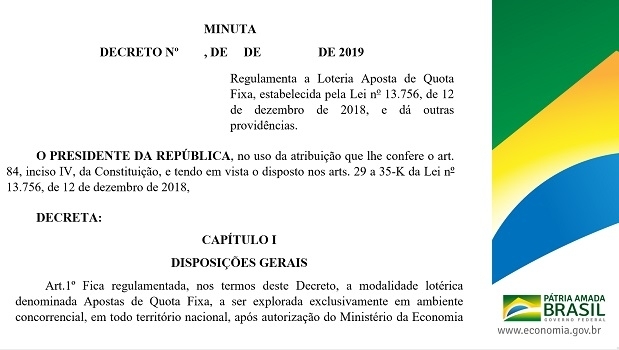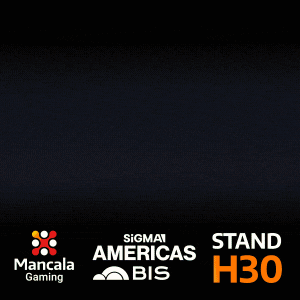Zona de Azar Brazil – Brazil Released Proposal Decree for Sports Betting

Brazil.- 16th September de 2019 www.zonadeazar.com The Ministry of Economy publishes today the proposal of decree to regulate betting in Brazil. Games Magazine Brasil had access to the full text that can be downloaded here (just in Portuguese by the moment). The Federal Government has already opened a new public consultation until the 27th (at www.economia.gov.br) to collect market contributions for the improvement of the decree. In this first draft, the Ministry decided not to include the amounts of authorization fees, monthly fees and taxes on games.
On Friday 13th, the portfolio publishes a draft decree to regulate the fixed odds sports betting sector, in which the player tries to predict the outcome of real events, such as football matches, and wins if he hits the score.
Also this Friday, the federal government opens a new public consultation for the sector. For 15 days, the market may comment on the draft decree and make observations. The deadline for submitting suggestions is until the 27th.
According to calculations, Brazil estimates that, once regulated, the sports betting industry could generate a gain of about R$ 100 million (US$ 24.5m) for public coffers as early as 2020. Approximately half of that amount will come from the direct collection of taxes on gaming, and the rest will result from authorization fees and mandatory monthly fees. The tax regime chosen to focus on this market is 1% on revenues, as is the case with the lottery system in Brazil.
According to the Secretary of Public Policy Evaluation, Planning, Energy and Lottery of the Ministry of Economy, Alexandre Manoel Angelo da Silva, the taxes collected may be accounted for in the fiscal year next year.
The estimated amount of R$ 100 million (US$ 24.5m) is half of the proposed budget, for example for the Ministry of Tourism in 2020. The portfolio will have only R$ 200 million (US$ 49m) to develop actions, projects, investments and maintain its structures.

Potential market
In an estimate considered conservative by the government itself, the betting industry should move between R$ 4 billion (US$ 985m) and R$ 6 billion (US$ 1.47bn) per year in the country – which would yield, according to 1% tax on revenues, from R$ 40 million (US$ 9.85m) to R$ 60 million (US$ 14.7m) in direct taxes. The market is more optimistic and expects a turnover of R$ 15 billion (US$ 3.7bn) and R$ 20 billion (US$ 4.9bn). Currently, the Brazilian lottery market, which includes games like popular lottery Mega-Sena, move R$ 14 billion per year (US$ 3.45bn).
In order to operate, companies will also have to pay an authorization fee of R$ 3 million (US$ 735m) in a single installment, which will entitle them to a license valid for nine years. The government estimates that at least 20 companies will apply for registration next year.
In addition to the entrance fee, companies will also have to pay a monthly amount, according to the chosen exploration regime. For those who work exclusively in the physical environment, the rate is R$ 20,000 (US$ 4,920). Firms that operate on the Internet will have to pay R$ 30 thousand (US$ 7,380) per month. Those who explore both modes will have to pay R$ 45,000 (US$ 11,000) per month.
According to Secretary Alexandre Manoel, although the new law tributes the sector, this is not the government’s focus on regulation.
“There are basically three justifications (for the law): the fight against illegality, the expansion of the integrity of the sport and, above all, the improvement of the business environment. This is what drives us to regulate this activity,” he says.
The interest in defining the new rules of activity surprised the economic area: 1849 suggestions were received throughout August, from Brazilians and foreigners. The plan of Paulo Guedes’s team is that by December the final version of the decree will be ready for presidential sanction, and by June 2020 – after a 6-month period for the market to adapt to the new rules – sports betting will begin function legally in the country.
Source: GMB / O Globo
Source: Games Magazine
Edited by: @MaiaDigital www.zonadeazar.com









































